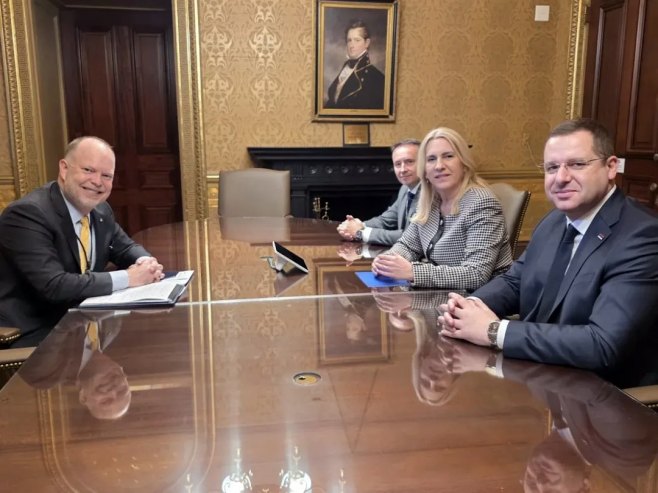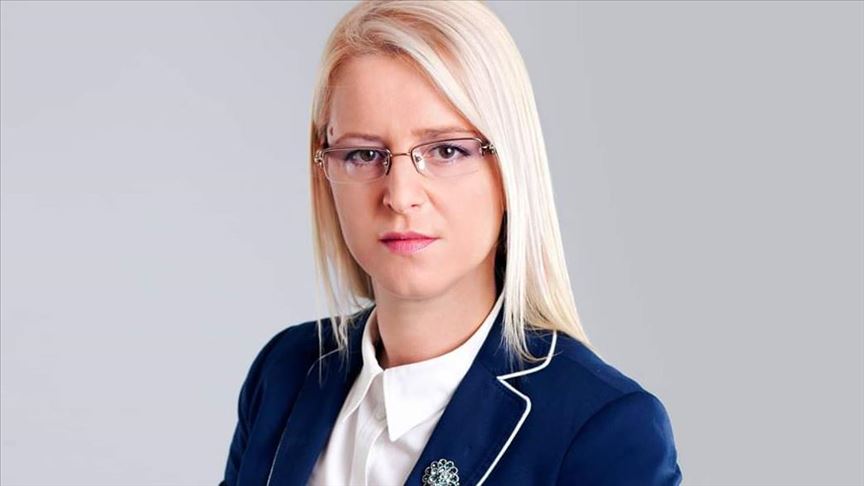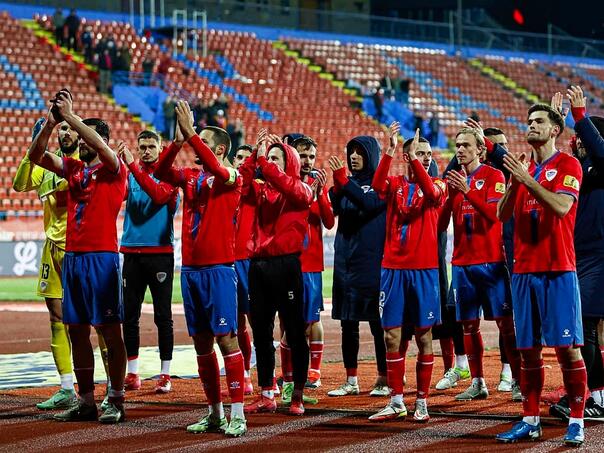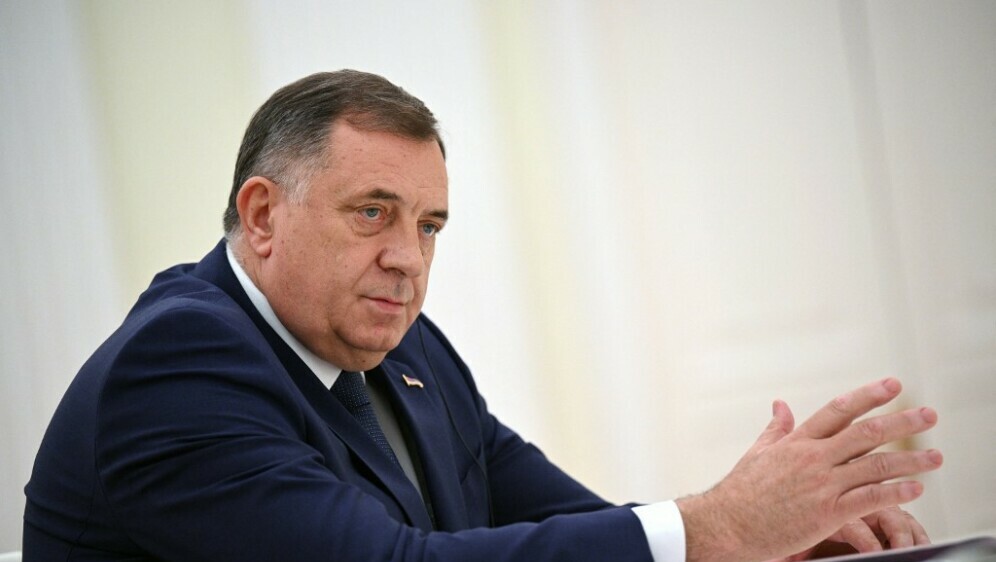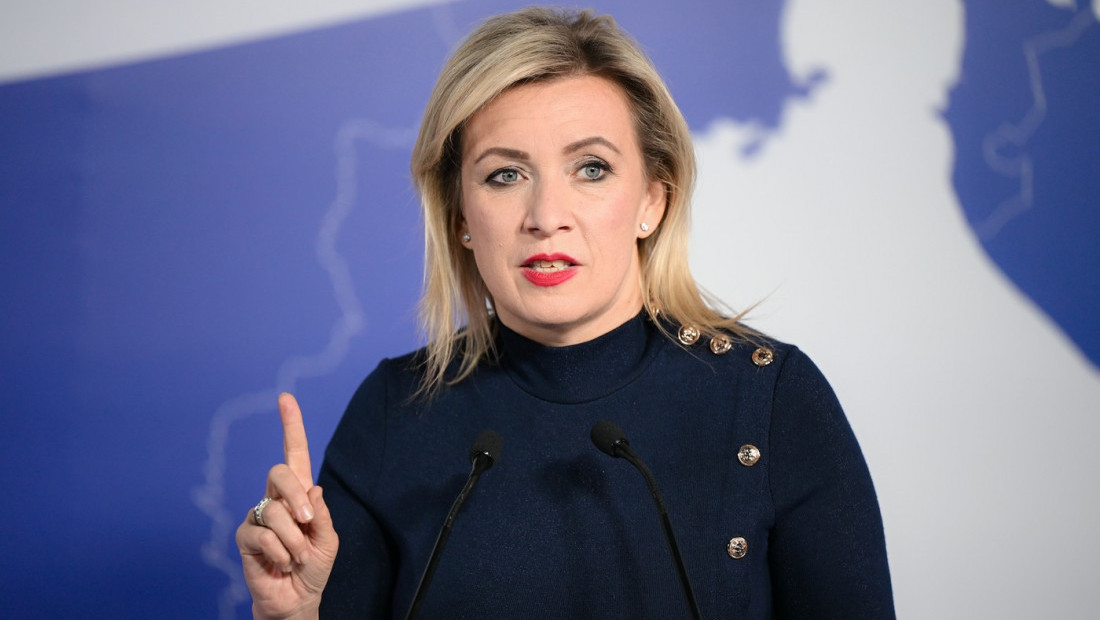Delegate in the House of Peoples of the Parliamentary Assembly of BiH and member of the BiH delegation in the Parliamentary Assembly of the Council of Europe, Snježana Novaković Bursać, emphasized that the so-called Kosovo* does not meet the conditions for membership in the Council of Europe and pointed out that this southern Serb province has not been recognized by the two most important political systems for the European continent – the United Nations and the European Union.
“Also, BiH has not recognized Kosovo* as an independent state and this fact will not change in the future, precisely because we in BiH are aware of what violating the sovereignty of any of the UN members could mean for the peace and stability of the region and Europe,” Bursać emphasized in her address at today’s session of the Committee on Political Affairs and Democracy in Paris.
One of the agenda items was the request of the self-proclaimed Kosovo* for admission to the Council of Europe, on the basis of which two documents were prepared – a report by a group of lawyers appointed by the Bureau of the Parliamentary Assembly of the Council of Europe concerning the request and additional information prepared by reporter Dora Bakoyannis.
During the discussion, Bursać highlighted that based on these two documents, it can be concluded that the current administration, i.e., the regime in Pristina, as well as their predecessors, do not respect international treaties and have no intention or will to take concrete steps to fulfill the obligations related to the establishment of the Community of Serb Municipalities.
“They do not even respect domestic verdicts of the Constitutional Court and their own legislation, including respecting fundamental rights such as property rights, especially when it comes to the land of the Visoki Dečani monastery,” Bursać reminded.
She emphasized that examples of illegal behavior by the Kosovo* administration include direct attacks on ownership rights, usurpation, and seizure of private property related to the illegal expropriation of land in Leposavić and Zubin Potok.
“Regarding the Visoki Dečani monastery, the report could read how the Pristina regime obstructs property rights. Also, it can be read that NATO forces, i.e., KFOR, guard that monastery. This is a unique example in Europe where armed forces must protect a UNESCO-protected cultural heritage,” Bursać stressed and questioned why this is necessary, whether someone thinks that Visoki Dečani, one of the greatest sanctities of the Serb people and Orthodoxy in general, must be protected with heavy weaponry in a so-called peaceful environment and true multi-ethnic society, and whether there is a similar example anywhere in Europe?
Bursać drew attention to the fact that the report prepared by the group of lawyers does not contain precise data related to the violation of basic human rights such as the right to freedom of movement, integrity, and security of people.
She mentioned that she must point out some facts about the general security of the Serb population that were not sufficiently covered in the report.
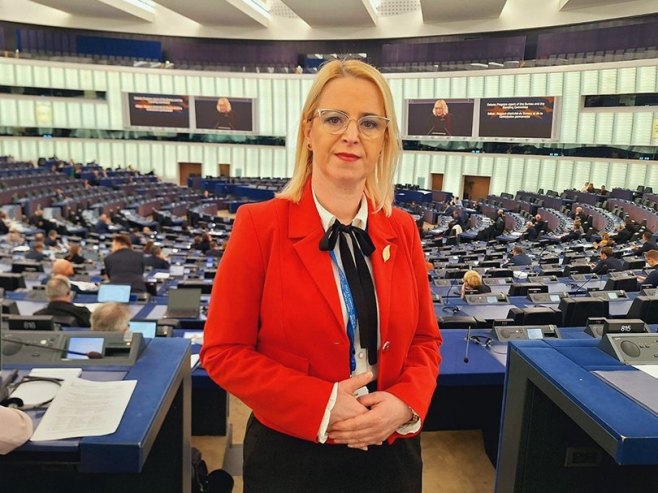
“One of these facts concerning general security is that the Serb population in Kosovo and Metohija, especially in the south, lives in a ghetto, without the basic right to freedom of movement. During 2023, there were 179 ethnically motivated attacks on members of the Serb people in Kosovo and Metohija, of which 14 were on bodily integrity using weapons, knives, or force, four of which were attacks on children,” Bursać stated.
Although the Kosovo* administration declaratively advocates for respecting standards of human rights protection, fundamental freedoms, and the rule of law in various documents, Bursać pointed out, the situation on the ground realistically reflects the real intention not to implement them.
“Specifically, on the ground, there is a great intention of the Pristina regime to limit the rights of the Serb population and the Serb Orthodox Church to the level of direct usurpation of property, interruption of cash flow, direct intimidation, unlawful detention, attacks on physical integrity, all with the aim of eliminating the Serbian population from that part of their own country and creating ethnically clean territories.
When added to the facts about attempts at reinterpretation of cultural heritage and history, devastation of cemeteries, and similar – the picture becomes uncomfortable and sad, but fuller. Bearing in mind all the facts mentioned, it is more than clear that Kosovo does not meet the conditions for membership in the Council of Europe,” Bursać concluded.
Source: Glas Srpske

